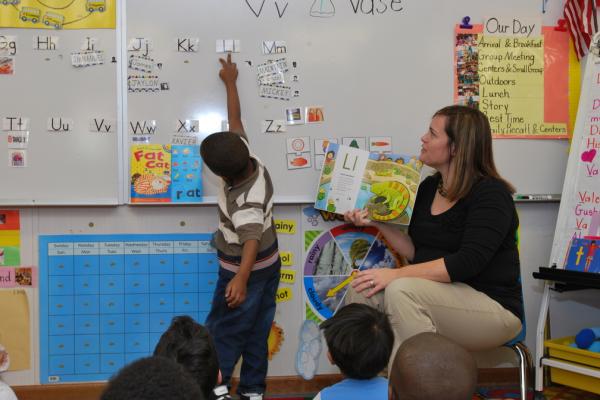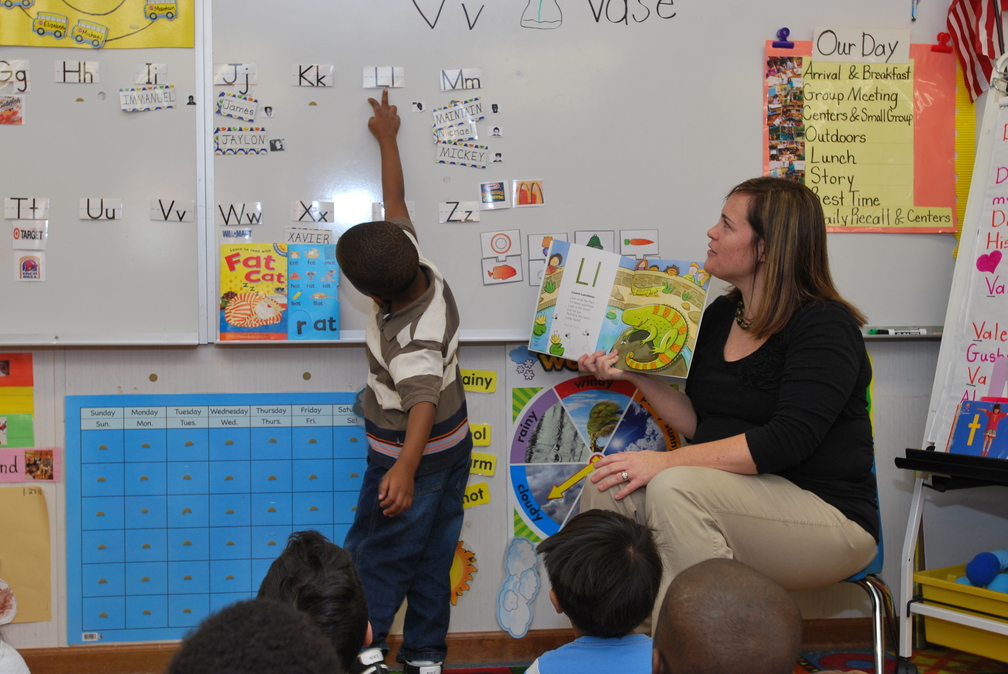
Intentional Teaching Makes the Biggest Impact on Early Childhood Outcomes
 A comprehensive review of research on several measures of the quality of early childhood education suggests that the instructional practices of preschool teachers have the largest impact on young children’s academic and social skills. The review helps untangle a complicated knot of factors that affect young children.
A comprehensive review of research on several measures of the quality of early childhood education suggests that the instructional practices of preschool teachers have the largest impact on young children’s academic and social skills. The review helps untangle a complicated knot of factors that affect young children.
“High quality preschool is one of the most effective means of preparing all children to succeed in school,” said Margaret Burchinal, senior research scientist at the Frank Porter Graham Child Development Institute (FPG) at the University of North Carolina at Chapel Hill. “However, this review of research indicates the need to expand our definitions of quality.”
Burchinal said her review of the science suggests the field should continue to measure the quality of relationships of preschool teachers and children, especially the sensitivity and warmth of the teachers. In addition, the review suggests factors such as the levels of education of program directors and teachers and the teacher-child ratio also influence outcomes.
However, the areas with the strongest connection to beneficial results for young children involve what teachers teach and how they teach it.
“The largest effects on child outcomes involve curricula,” Burchinal explained. “Some of the biggest impacts on literacy, math, and other skills involved curricula focused on those specific skills with accompanying coaching or training for teachers.”
According to Burchinal, many of the most effective curricula incorporate planned, engaging activities for preschoolers, with a schedule of lessons and activities in a variety of learning settings. Effective learning opportunities often include some whole group instruction and more time in small groups, learning centers, and computer work.
Burchinal also said the research shows that the teaching practice of “scaffolding” brings big benefits. “Scaffolding occurs when the adult caregiver talks with and models a learning activity for the child, making the activity fun through conversation that builds on and extends the child’s interest and knowledge about the world.”
Some of the largest impacts on children’s outcomes have arisen from the strongest pre-kindergarten programs, Burchinal added. These programs show even larger impacts for dual-language learners and for children from low-income families.
“These pre-kindergarten impacts are larger than impacts from traditionally-measured dimensions of quality,” Burchinal said. “This is further evidence that more focus on scaffolding and intentional teaching is needed.”
Burchinal pointed to FPG’s Abecedarian Project as an example of a program that combined intentional teaching with warmth and sensitivity. The project used an intensive, language-driven approach that involved teacher scaffolding of activity-based learning to build children’s knowledge base and language skills. The center-based, birth-to-5 program for children from low-income homes famously contributed to better cognitive, socio-emotional, and physical health outcomes that have persisted for decades.
Burchinal’s new review of research includes several studies based in the United States and other countries. “Measuring Early Care and Education Quality” appears in Child Development Perspectives, which the Society for Research in Child Development publishes.
“As we think about the components of high-quality early childhood education, our policies and practices can reflect what this research tells us,” she said. “Ideally, our new models of quality will encompass evidence-based curricula and intentional teaching within content areas, as well as professional development that focuses on the teaching practices that promote the skills young children need to succeed in school.”
Contact
Margaret Burchinal, senior research scientist
Frank Porter Graham Child Development Institute
University of North Carolina at Chapel Hill
burchinal@unc.edu
919-966-5059
